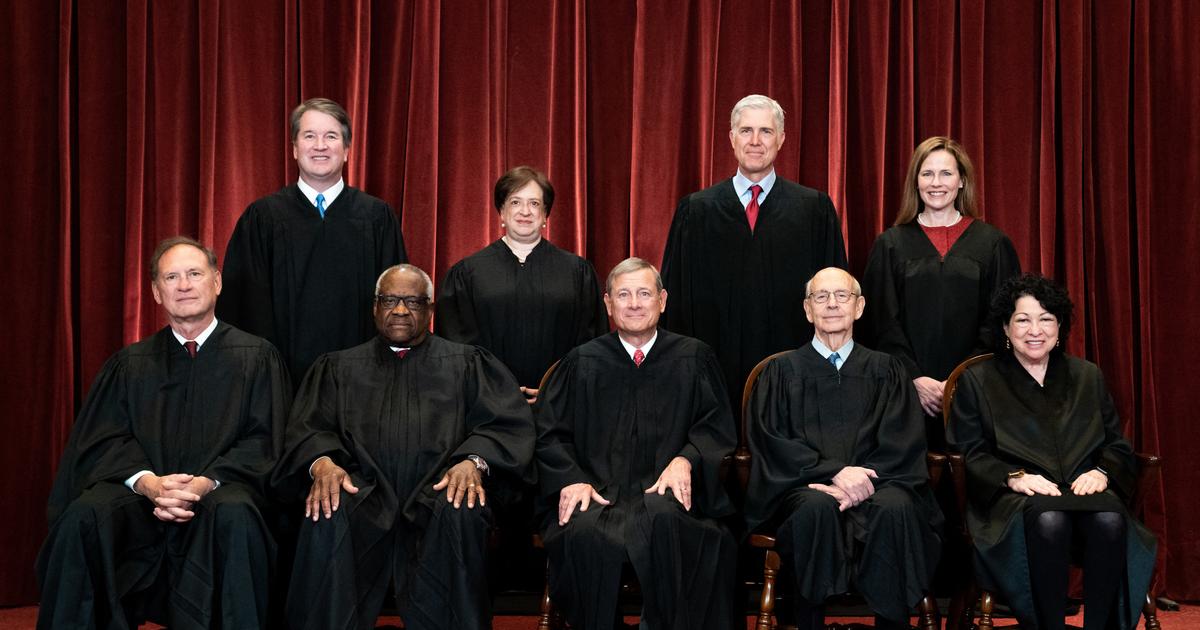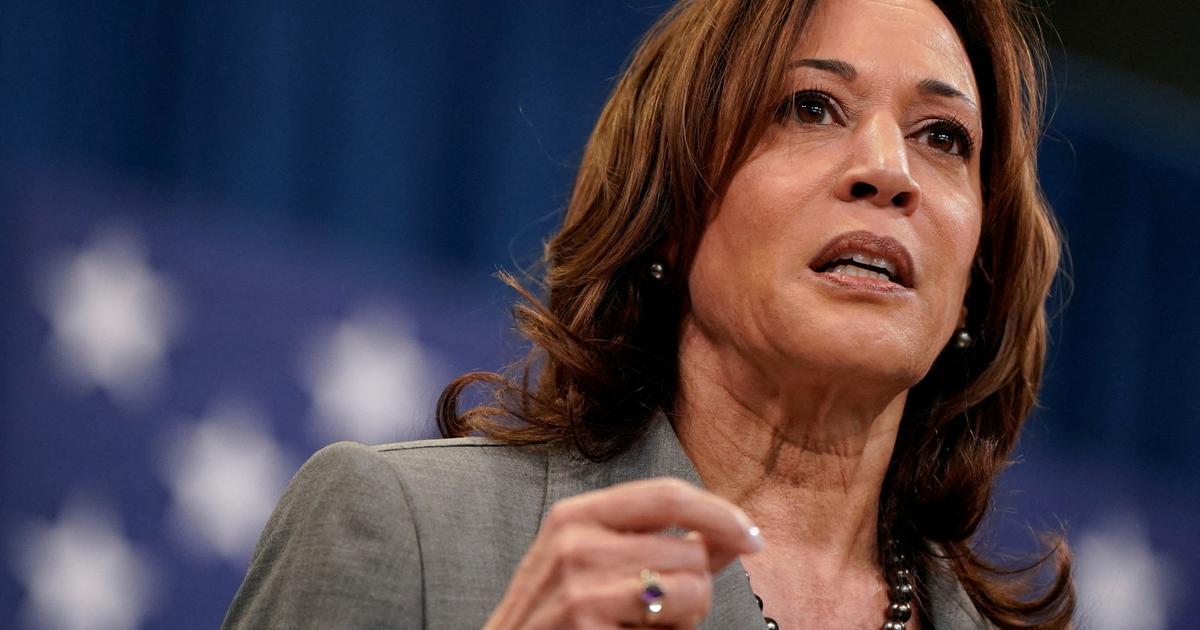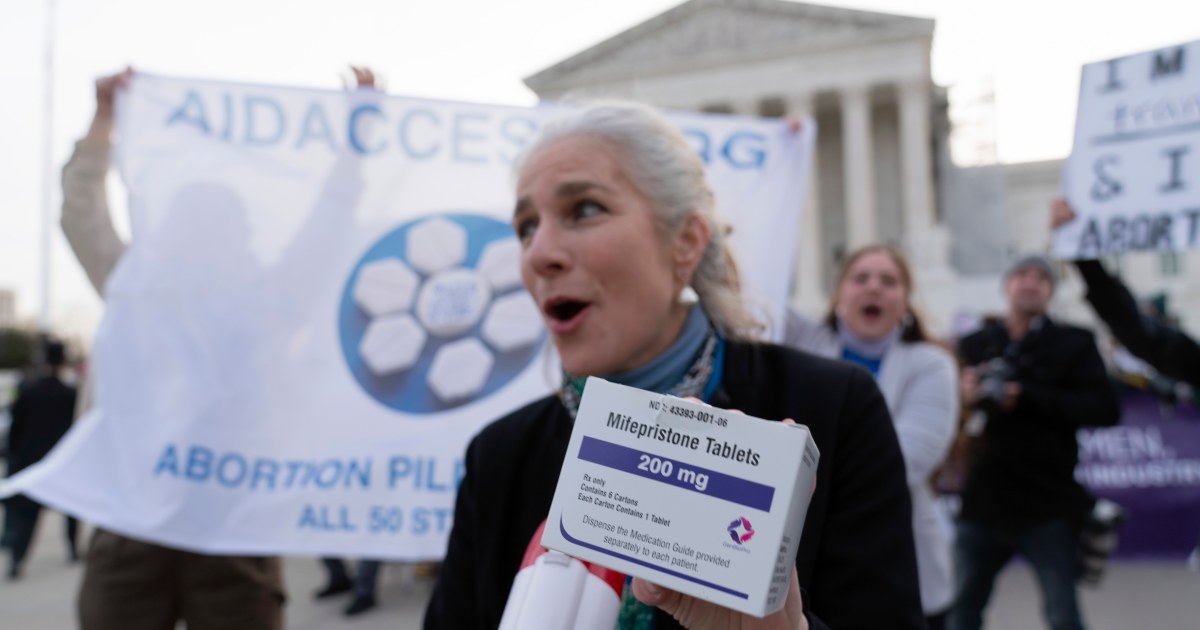"
They lied under oath
": since Friday, many Americans in favor of the right to abortion accuse three of the justices of the Supreme Court of having "
lied under oath
", during their hearing by the Senate at the time of their appointment.
More specifically, they are the last three justices to join the Court, three conservatives appointed under the presidency of Donald Trump: Neil Gorsuch, Brett Kavanaugh and Amy Coney Barrett.
According to their accusers, all three would have made believe that they would never reconsider Roe v.
Wade, which they have just helped to repeal.
SEE ALSO -
Right to abortion revoked: "Women's health and lives are in danger", deplores Joe Biden
Read alsoTRIBUNE - Abortion: what the Supreme Court of the United States really said
The declarations to which reference is made are those made by each of these three judges at the time of their hearing by the senators (“
confirmation hearing
").
According to the American Constitution, it is indeed the President of the United States who appoints, for life, each new judge of the Court as soon as a seat is vacant;
but this nomination must be confirmed by a vote of the senate, preceded therefore by a hearing of the candidate who undertakes under oath to answer the truth to the senators.
During this hearing, the subject of the future of Roe v.
Wade has been mentioned time and time again, and even quite extensively, before the appointment of the conservative justices who make up the current Supreme Court, and in particular the three justices appointed by Trump.
Even Senator Susan Collins, yet a member of the Republican Party, considered that the decision made Friday by the Court was "
inconsistent with the statements made by Justices Kavanaugh and Gorsuch during their testimony before the Senate as well as the exchanges
” that she claims to have had with each of them.
But to tell the truth, the precise rereading of the remarks made under oath by the judges before the Senate shows that they voluntarily evaded the question, and did not undertake to maintain the constitutional right to abortion, as shown in particular by the
New York Times
which exhumed for the occasion the precise script of their respective auditions.
Amy Coney Barrett: “
I will follow the law
”
Last to arrive at the Court, Judge Amy Coney Barrett never hid her anti-abortion positions before her appointment – this is what had earned this fervent Catholic the hostility of the Democratic camp.
Read alsoAmy Coney Barrett, a practicing Catholic at the Supreme Court
In October 2020, she voluntarily refused to tell senators what she would do in the event the Court were to consider a case challenging abortion as a federal and constitutional right.
His answer was cryptic: "
I promise to follow what the law says, whatever the decision, whether it's abortion or something else
."
Adding: "
if such a question arises, I will follow the law and I will apply the rules which apply to a question 'stare decisis', that is to say that I will articulate the previous decisions of the Court to the new elements who can make a difference
”.
This is perhaps the ambiguity: in law, the Latin expression "
stare decisis
" (which means "
to stick to what has already been decided
") is an adage according to which a decision taken previously by judges must be applied later in the same way.
This is a principle that applies especially in countries where the law follows a “ common law
” tradition
, that is to say those where the courts play a very important role in defining the law.
But the expression "
stare decisis
means above all that the lower courts must apply the same decisions as the higher courts, in the legal order.
Thus the Supreme Court, if it generally confirms in its decisions the conclusions that it has previously adopted in similar cases, may very well decide to adopt an opposite conclusion - especially if it considers that the previous decision is flawed.
This is precisely what happened with the judgment taken on Friday.
The judges overwhelmingly held that Roe v.
Wade had misinterpreted the Constitution, and that it does not imply the recognition of a federal right to abortion.
This reasoning is based on a so-called “ originalist
” tradition
in American law: sticking to the strict text of the Constitution, and the intention of the founding fathers who drafted it.
Amy Coney Barrett has been attached since the beginning of her legal career to this conservative tradition, and has therefore considered that the defense of a constitutional right to
Brett Kavanaugh: "
Roe v.
Wade is an important precedent
”
During his hearing in September 2018 (made eventful by accusations of sexual violence, finally denied in part a few months later), Brett Kavanaugh also took care not to commit to maintaining a federal right to abortion.
Asked about this, he contented himself with recalling that the Roe v.
Wade is an important Supreme Court decision and that it has been upheld many times since 1973. “
It is an important Supreme Court precedent, which has been reaffirmed often
,” he said, citing his also the notion of "
stare decisis
", and insisting that another decision, Planned Parenthood v.
Casey, had created in 1992 a second precedent.
But when it came to saying whether, in his opinion, these two judgments resulted from a correct interpretation of constitutional law, Brett Kavanaugh carefully avoided answering.
Neil Gorsuch: "
A judge's personal opinions should not interfere with his work
"
Finally, it is difficult to accuse Neil Gorsuch, auditioned in March 2017 by the Senate, of having pledged never to return to Roe v.
Wade: Here again the judge stuck to a balancing act when faced with questions from the senators.
Also confirming that Roe v.
Wade constitutes an important precedent in his eyes in the decisions of the Supreme Court, reaffirmed several times since, Neil Gorsuch then argued that "
a good judge must look at this judgment like any other precedent of the Court
".
However, it is not rare, precisely, that the Supreme Court overturns a precedent by a new judgment, as when in 2005 the decision Roper v.
Simmons returns to the authorization of the death penalty for minors.
“
A judge who begins to rant about what court precedent inspires him, and whether he likes such a decision or not, would send the wrong signal to the American people.
A judge's personal opinions should not interfere with his work
,” he added.
In short, the words of the three judges were deliberately unclear, summarizes the specialist in American constitutional law Anne Deysine*: “
they all three refused to recognize the status of 'super precedent' in the Roe v.
Wade of 1973
”, but asserted all the same, in answer to the question of the senator Susan Collins, “
that the decision Roe v.
Wade was well established law, 'settled law'
”.
Something to keep your elbows open.
* Emeritus Professor of the University of Paris-Nanterre, author of the
United States and democracy
, ed.
The Harmattan, 2020.
SEE ALSO -
United States: Missouri, "first" state to ban abortion, says its governor


/cloudfront-eu-central-1.images.arcpublishing.com/prisa/OCS7V4Q6YKB6UMI76BXPPNGQJE.jpg)






/cloudfront-eu-central-1.images.arcpublishing.com/prisa/3F3EHAP7NYDCD7NIOIZLOQJFPI.jpg)


/cloudfront-eu-central-1.images.arcpublishing.com/prisa/KMEYMJKESBAZBE4MRBAM4TGHIQ.jpg)


